【编者按】
他们,来自不同的国家,有着不同的文化背景,但却缠绕着一种中国情结;他们,因不同的梦想而来,栖居在不同领域,却都充满了对梦想的追求、对事业的执著和对江苏的挚爱。他们的故事,汇聚在一起,便成为时代的缩影。12月17日起,江苏国际频道联合荔枝新闻、我苏网,推出“我的江苏故事(My Jiangsu Story)——庆祝改革开放40年特别策划”,一起来听,他们的江苏故事。
【人物简介】
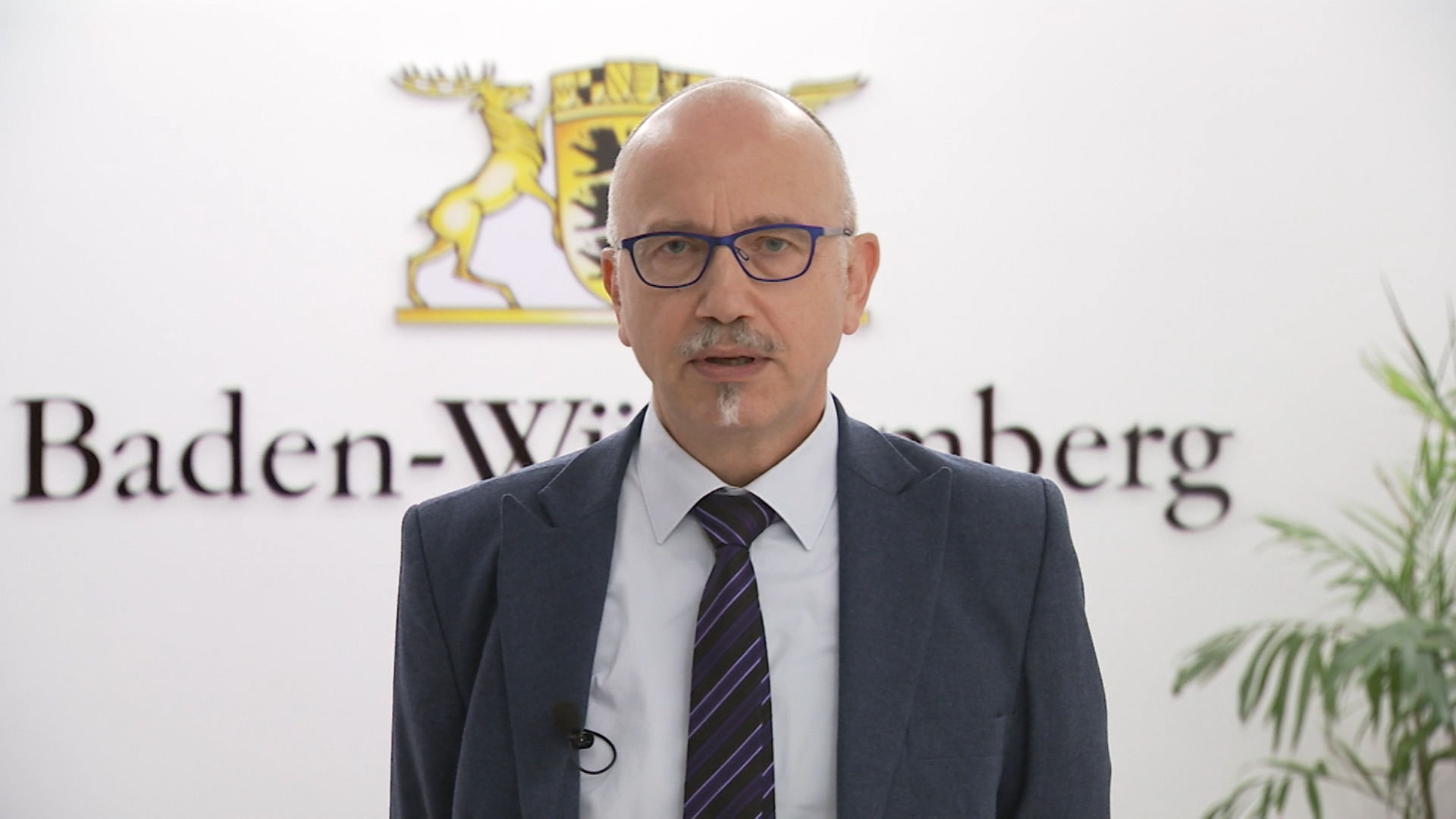
魏博
魏博生于1958年5月,曾在欧洲、中国、日本、美国等国学习,以优异成绩获得文学硕士(MA)和工商管理硕士(MBA)学位。1994年,魏博先生被派驻中国,担任南京西门子电力自动化有限公司商务副总经理,开始了在中国的工作历程。1998年,魏博开始在位于无锡的博西威家用电器有限公司任职。2014年10月被任命为博西家用电器投资(中国)有限公司高级副总裁兼首席行政官。2018年,魏博担任德国巴登符腾堡州驻华首席代表,致力于巴符州和中国政府企业间交流。2011年,魏博先生荣获由江苏省政府颁发的“江苏友谊奖”。
戳视频↑↑↑看魏博的江苏故事
魏博,欧盟商会南京分会主席,德国巴登符腾堡州驻华首席代表。在南京生活了二十多年的他,早已经把南京当作他的第二个家。
Bernhard Weberis the Chair of the Nanjing Chapter of the European Chamber of Commerce in China and the Chief Representative of the State of Baden-Württemberg in China. After staying in Nanjing for over 2 decades, he has already regarded Nanjing as his second hometown.
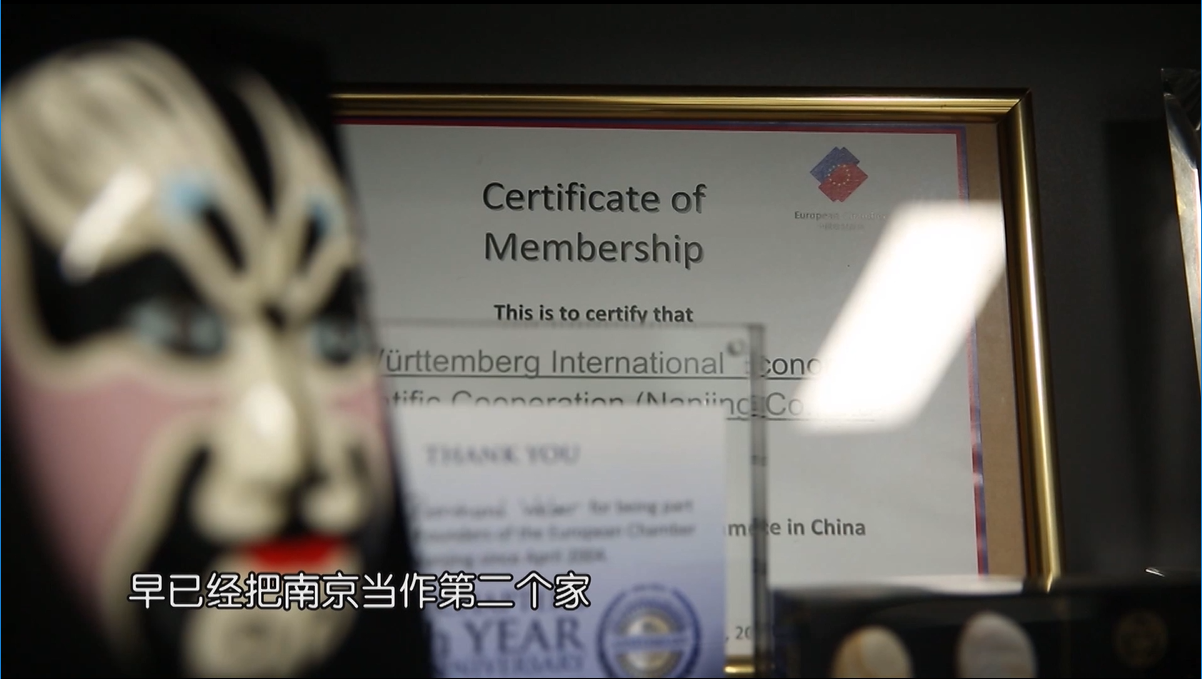
位于德国西南部的巴登符腾堡州是德国人口第三大州,近几十年来工业发展迅速。1986年,巴符州在南京设立代表处。次年,江苏省在巴符州首府斯图加特设立代表处。代表处的设立增进了江苏省和巴符州的友好关系。1994年,双方正式缔结为友好省州。
Baden-Württemberg, located in southwestern Germany, is the third most populous state in Germany and has seen rapid industrial development in recent decades. In 1986, Baden-Württemberg established a representative office in Nanjing. In the following year, Jiangsu established a representative office in Stuttgart, the capital city of Baden-Württemberg. The establishment of representative offices has tremendously enhanced the friendly relations between the two sides. In 1994, Jiangsu and Baden-Württemberg formally became sister provinces/states.
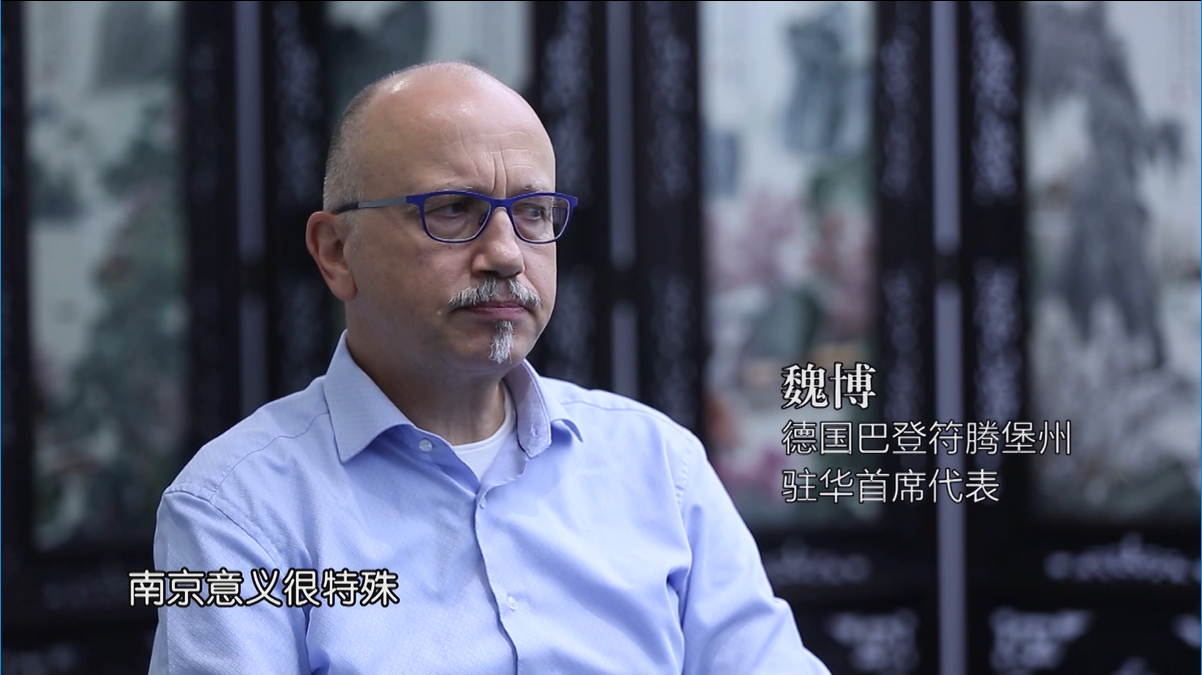
“对于我来说,南京意义很特殊。她是中国历史上非常重要的古都之一。”魏博对记者说道。
“For me, Nanjing has a special meaning because it is one of the major capitals of Chinese history,” said Weber.
“我第一份工作是西门子(电力自动化有限公司)的商业经理。在刚开始的两年,要得到项目非常困难。我是九个月里的第三个外籍商业经理,因为我的前两任不适应南京的生活。”
“My first job was basically the commercial manager of Siemens Joint Venture. In the first two years it was very difficult to get projects. And I was the third foreign commercial manager in 9 months, because my two predecessors couldn’t stand to live in Nanjing.”
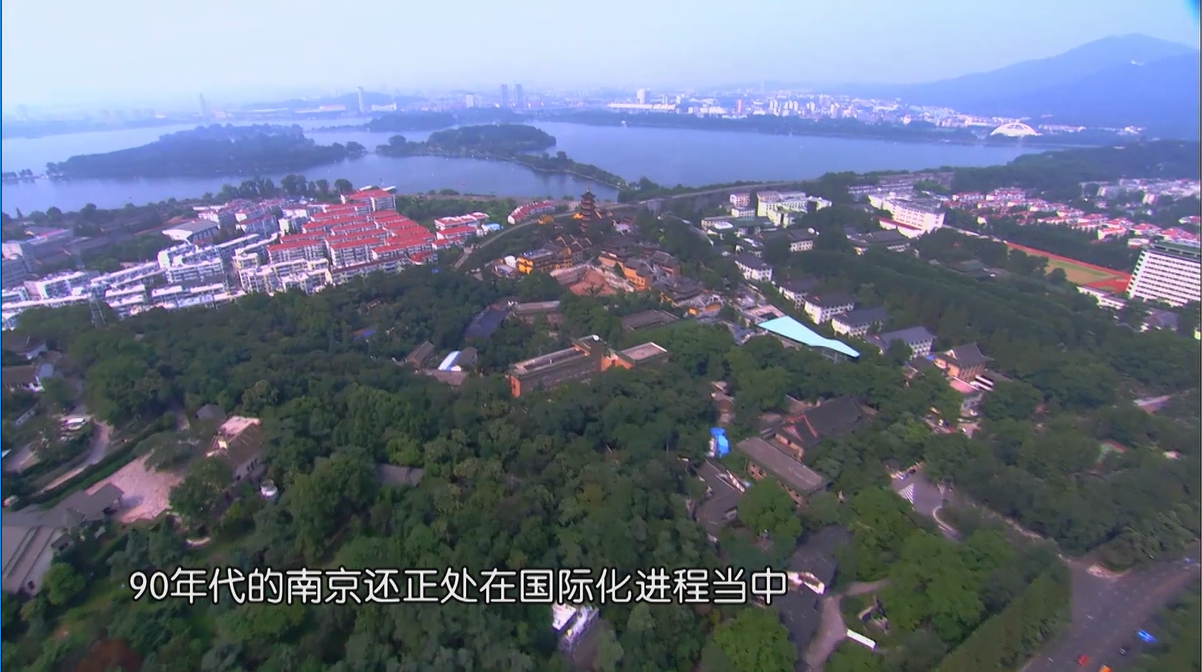
90年代的南京还正处在国际化进程当中。对于魏博这样的外国人,要适应这里的生活确实有些困难。但魏博却非常喜欢这种变化与挑战。
Nanjing in the 1990s was still in the process of internationalization. For foreigners like Bernhard Weber, it might be difficult to adjust to the life here. But Weber loves the changes and challenges.
“在那个时候,中国建造了很多发电厂,市场潜力很大。”
“At that time, a lot of power plants were built in China.So, there would have been a huge potential.”

随着改革开放的推进,越来越多的外企进入了中国,落户江苏。1998年,魏博开始供职于位于无锡的博西家电集团。
With the reform and opening-up policy, more and more foreign enterprises have entered China and settled in Jiangsu. In 1998, Weber started working for BSH, a German home appliance companythat opened its branch in Wuxi.
魏博告诉记者,一开始的时候他们没有意识到“本土化”的重要性。当时他们把欧洲的家电产品,不加改变,就带到了中国市场。
Weber said that BSH also made the same mistakes in the beginning. They brought European home appliances unaltered to the Chinese market.
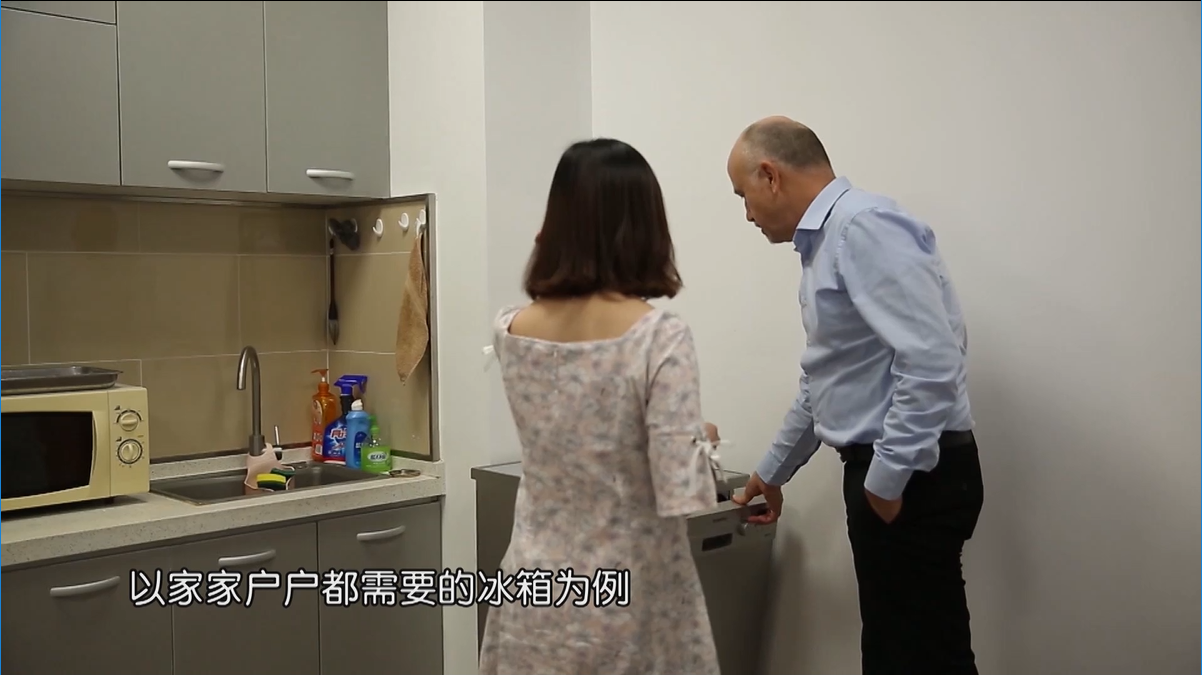
就拿家家户户都需要的冰箱为例,中国人和欧洲人在使用冰箱的习惯上就有很大不同。
Taking refrigerator as an example, Chinese and Europeans have very different habits of using them.

“我们当时发起了一个活动,让我们的售后服务人员在顾客家中修理或安装家电时,询问他们是否能把冰箱打开,拍点照片。我们收集到了几千张冰箱的照片,来分析他们如何使用。对于很多德国工程师来讲,是很吃惊的。比如我们非常吃惊中国人在冰箱里面放了那么多的鸡蛋。”
“I remember that we had one campaign. We asked our customer service people to ask the customers when they were repairing or installing something in someone’s home whether they could take a picture of their open refrigerators, and we had a collection of thousands of pictures of refrigerators. From that we learnt how people were using it. Sometimes for lots of the German engineers, it was extremely surprising, for instance,the amount of eggs normally stored in the fridges in China.”
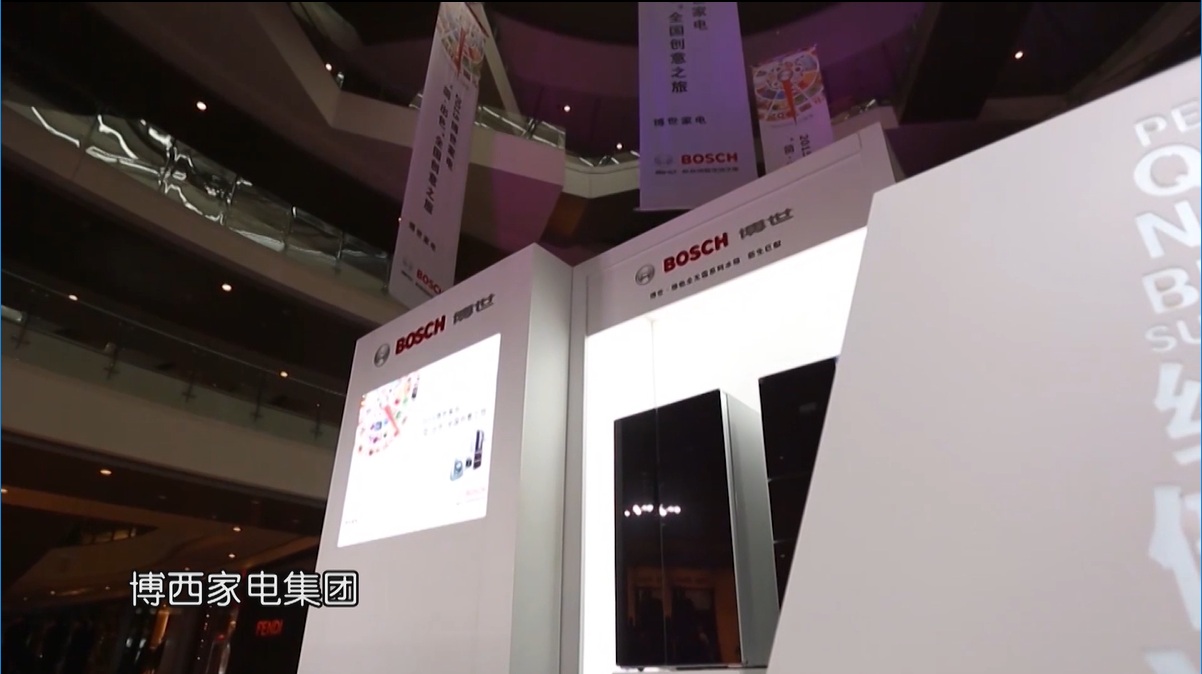
随着中国市场的不断成熟。2010年10月,博西家电集团在南京投资设立了博西家用电器投资(中国)有限公司,这也是南京市首家跨国公司地区总部。
Over the years, China’s market has been more and more mature. In October 2010, Bosch Group established BSH Home Appliance Holding (China) Co., Ltd. in Nanjing. This isNanjing’s first regional headquarter of a global company.
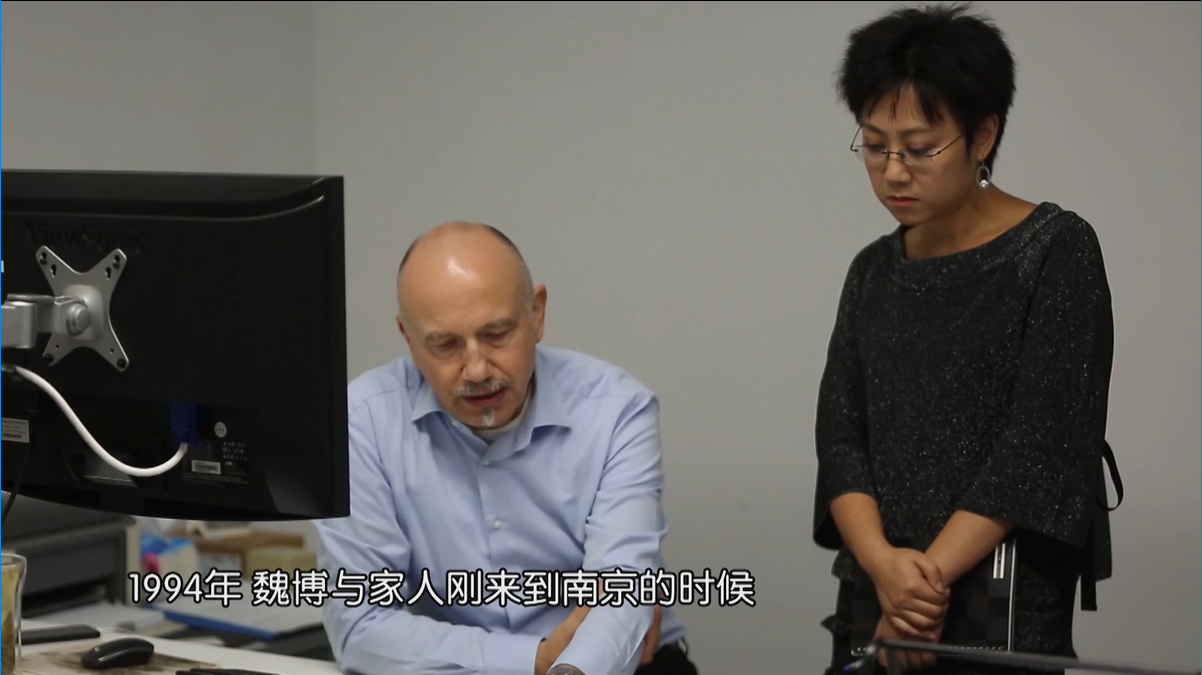
作为第一批在中国成长起来的外企高管,魏博还促成了江苏第一家国际学校的建立。1994年,魏博与家人刚来到南京的时候,他5岁的儿子在融入中国课堂的过程中遇到了困难。子女的教育问题一直牵动着魏博,这时候,魏博发现,和他情况相似的不止一家。
As the senior executive of one of the first foreign enterprises that grow in China, Weber also contributes to the establishment of Nanjing's first international school. When hecame to Nanjing in 1994 with his family, his 5-year-old son could not fit into Chinese classrooms. The education of his children has been a huge issue for him. At that time,Weber found that he was not alone.
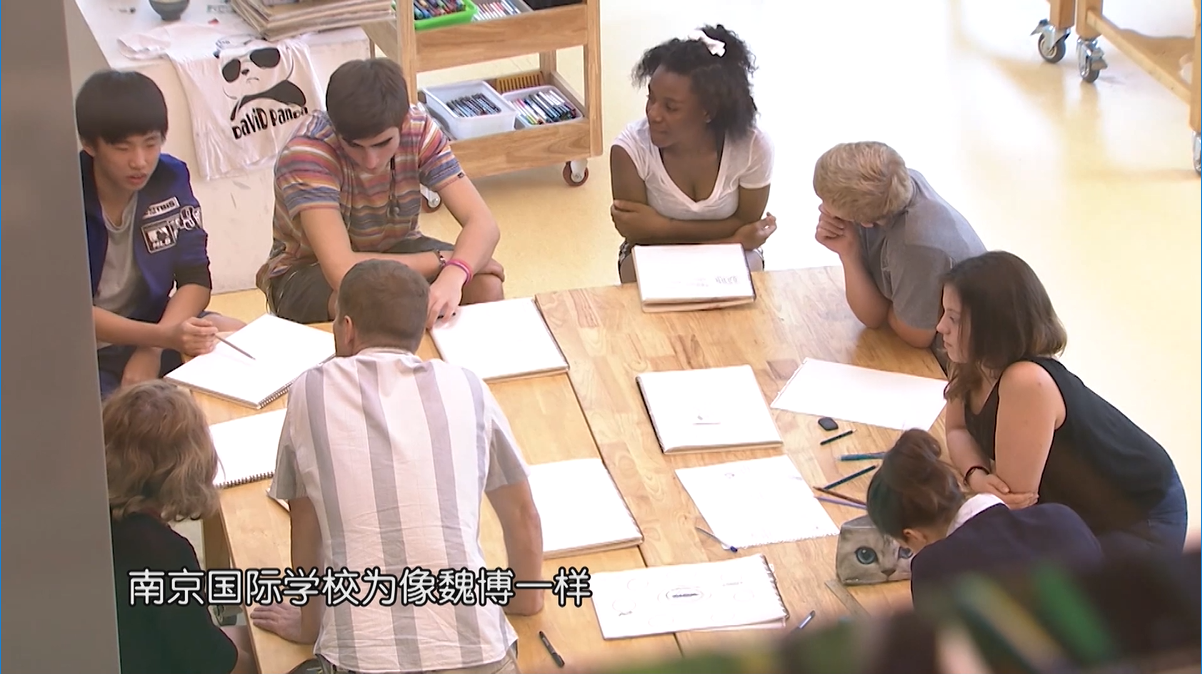
“我爱人当时跑去了南京市政府外事办公室,询问开设国际学校的可能性。他们给了她一份文件,这份文件是从在北京的教育部下发的,明确表示允许外国人开设国际学校。所以我们带着这份文件去了有关部门,与另外两个家庭和我的一个朋友,我们四个家庭共同申请开办了如今的南京国际学校。”
“My wife went to the Waiban and inquired about the possibility of establishing international school. They gave her a document which had come downfrom the Beijing’s Ministry of Education which allowed foreigners to open the international schools. So we took these pieces of paper to the authorities. We had another two families and another friend of mine, so the four families of us startedthe legal application for what is now the Nanjing International School.”
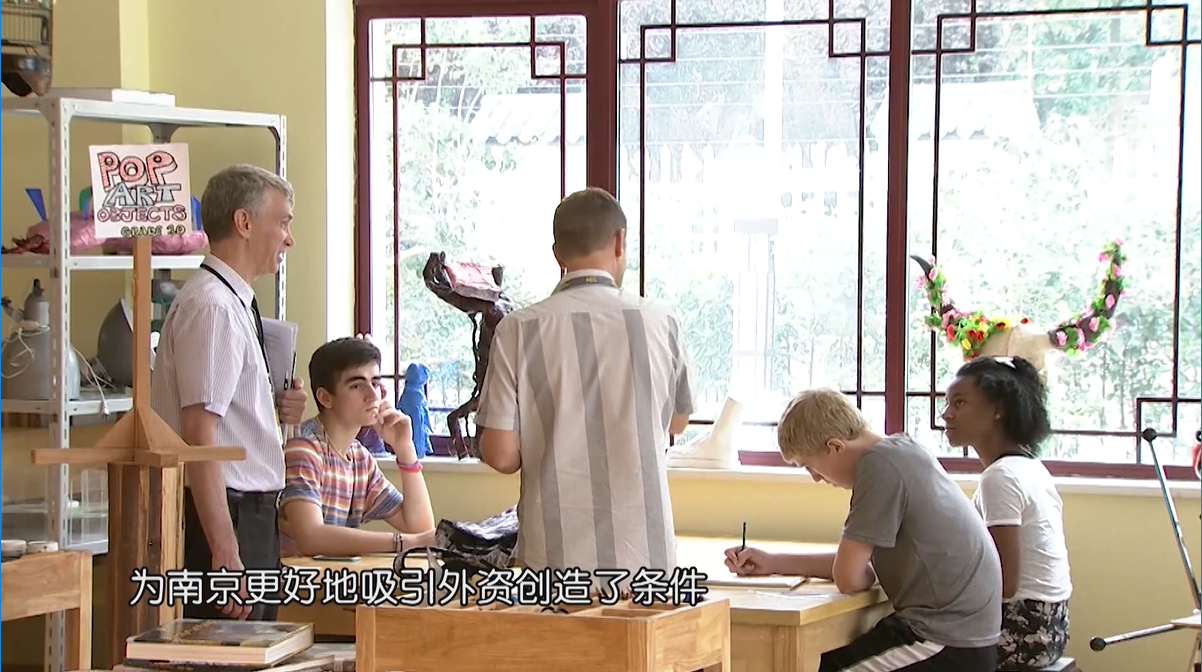
南京国际学校为像魏博一样来江苏工作的外籍家庭的子女就学提供了便利,也为南京更好地吸引外资创造了条件。目前,江苏省共有约100所国际学校。
Nanjing International School has solved a major problem for foreign families like Bernhard Weber’s. With the establishment of more international schools, Nanjingbecame a much more competitive place to attract foreign investment. Now, Jiangsu has around 100 international schools.
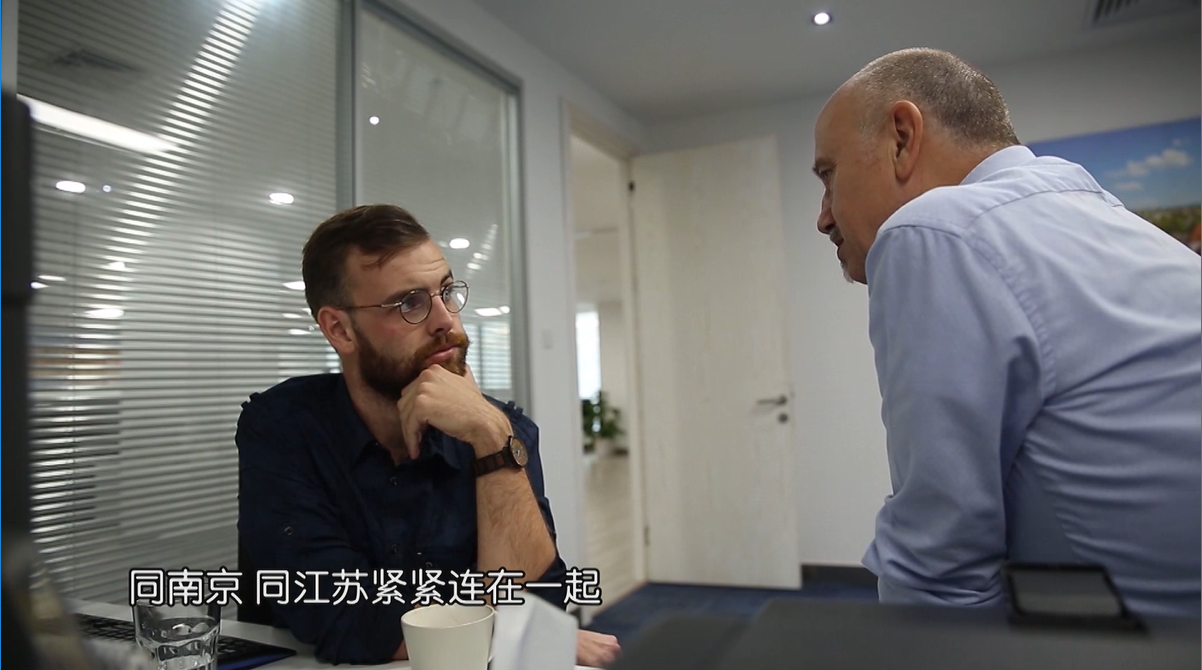
在中国24年的生活、工作已经让魏博同江苏、同南京紧紧连在一起。出生在巴登符腾堡州的他,也愿意用自身的力量拉近江苏与巴符州之间的距离。
The past 24 years has made Weber closely connected to Nanjing, and to Jiangsu. Born in the German State of Baden-Württemberg, he is willing to use his own strength to boost more communication betweenBaden-Württemberg and Jiangsu.
“我们(巴符州驻华代表处)给巴符州的中小企业提供了相对低成本、低风险的进入中国市场的机会。我们现在有18家企业(现为17家,一家已成功孵化)。有些是想去往德国,有些是想来到江苏,这是双向的。我们非常乐意推动德国企业进入中国市场。”
“We offered small and middle size companies out of our state an opportunity to try out for the Chinese market at a very low cost and very low risk. We have now 18 companies here, and some are going out, some are coming in. We’d very much like to facilitate the transitions for German companies to the Chinese market.”
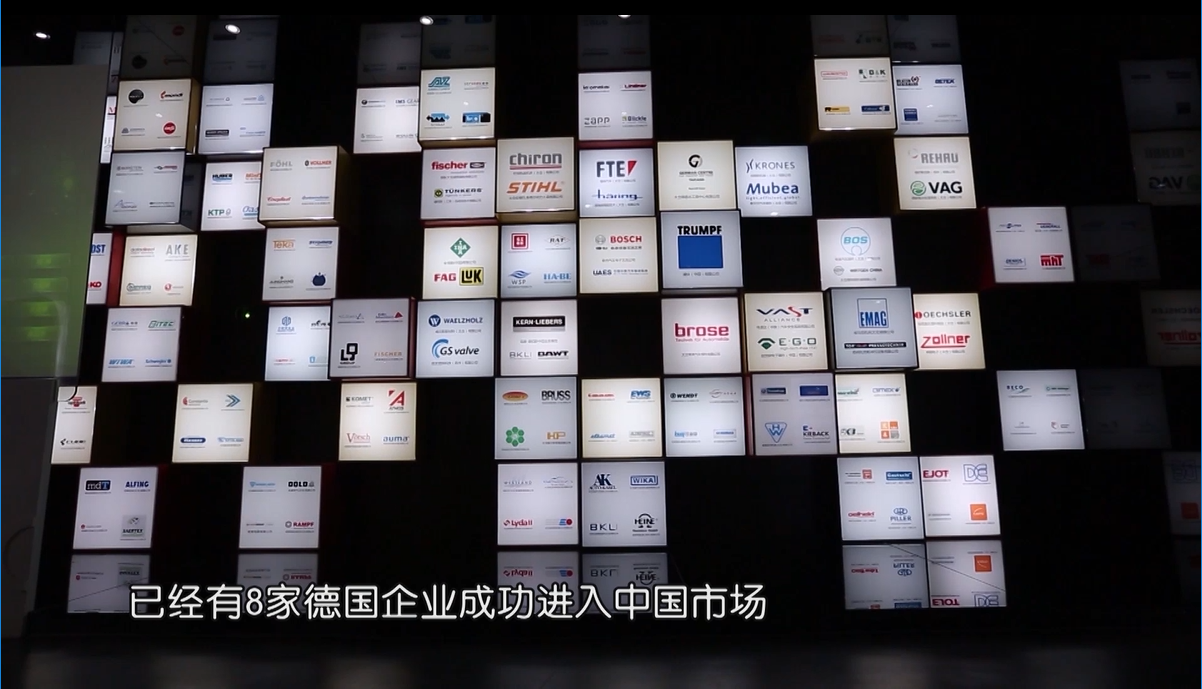
目前,巴符州南京办事处公司集合体拥有17家德国企业。目前,已经有8家德国企业成功进入中国市场,在江苏设立了分公司。
Currently, there are 17 German enterprises in the Baden-Württemberg International(bw-i) Company Pool. Eight German enterprises have successfully entered the Chinese market and established branches in Jiangsu.
“我觉得我们有很大的潜力将两地的合作带到更深的层次。我们双方已经同意未来在大学和政府机构方面开展更多的交流。”魏博说道。
“I think there is a lot can be done, not to make it better, but to bring it further. Weagreedon different ways to corporate in the future. There will be more exchanges between universities and the government agencies in our state of Baden-Württemberg.”
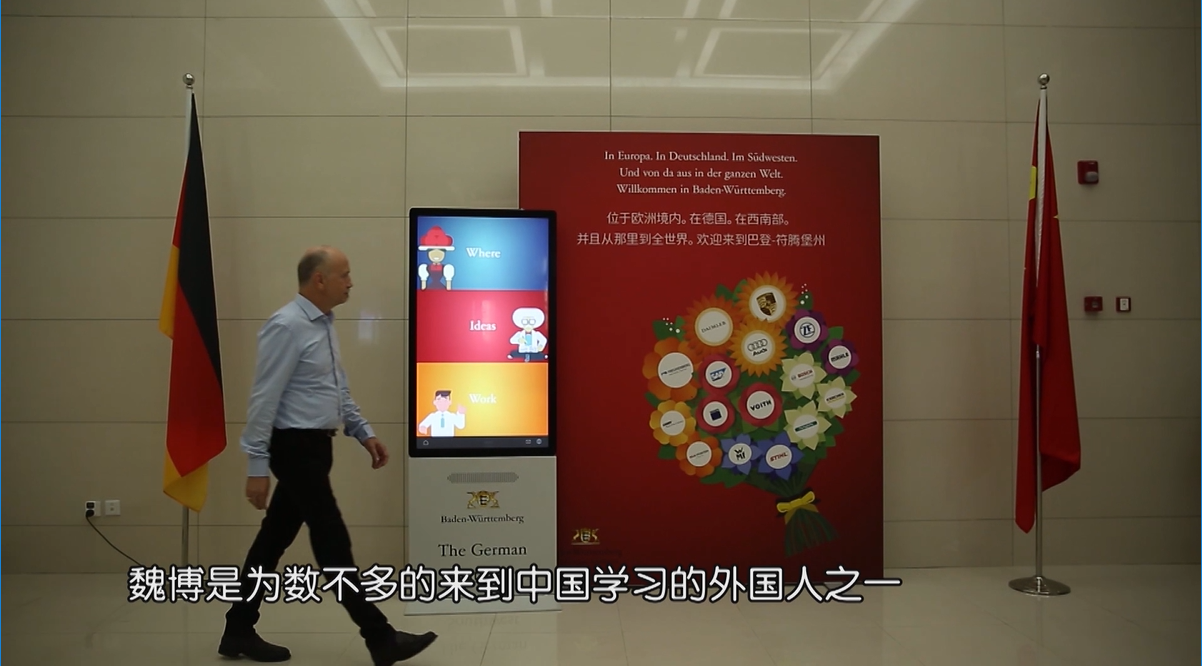
上世纪八十年代,中国刚刚开放,魏博是为数不多的来到中国学习的外国人之一。现在,他已经成为了故乡巴符州和第二故乡江苏之间的“友好使者”。他与南京,与江苏也永远联系在了一起。
In the 1980s, Weber was one of the countable foreign students that werewilling to go to the just-open China. And now, he becomes a crucial messenger between his hometown in Baden-Württemberg and his second hometown in Jiangsu. And his bond to Nanjing, to Jiangsu will last forever.
【人物寄语】
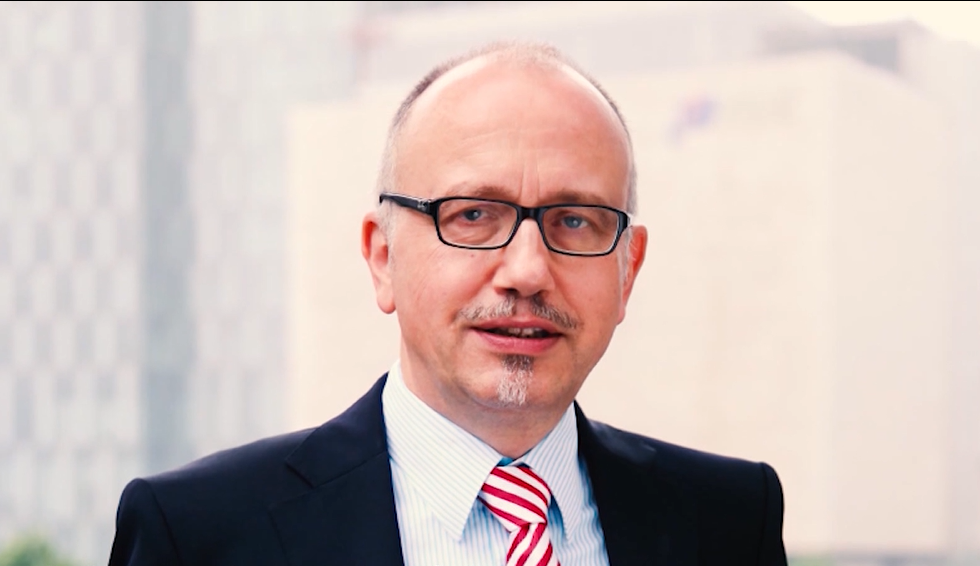
“我在这里已经呆了很长时间了,所以我见证了过去三、四十年间,整个社会从以农业为基础变成了以工业为基础。你们这一代(90后)是在改革开放中成长起来的,但对于你们父母那一代,他们在短短几十年经历了如此巨大的变化,并赶上时代潮流。从西方的角度来讲,我们经历这种转变花了100多年。所以这一点是很难以置信的,我非常敬佩。”
"I've been here for a long time, so I've seen the whole society transforming from anagriculture-based society toan industry-based society in the past 30 or 40 years. Your generation (post-1990s) grew up in the process of reform and opening-up.But for your parents' generation, they have undergone such tremendous changes in just a few decades and caught up with the times. From our perspective, it took us over100 years to go through this transition. So that's quite incredible, I really respect that."
(视频/江苏国际频道制作,编辑/程梦青)






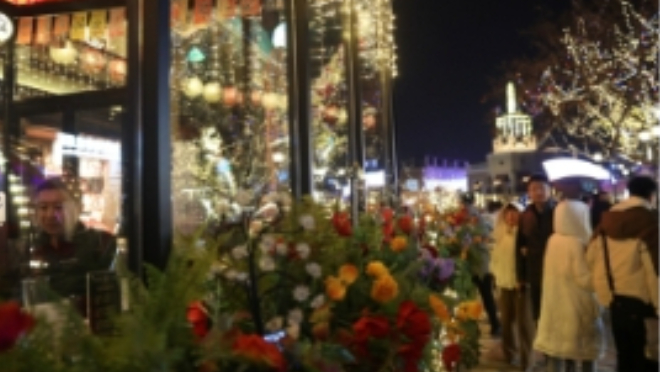
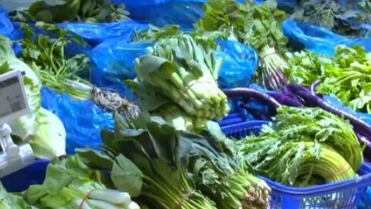
 公安备案号:32010202010067
公安备案号:32010202010067
我要说两句